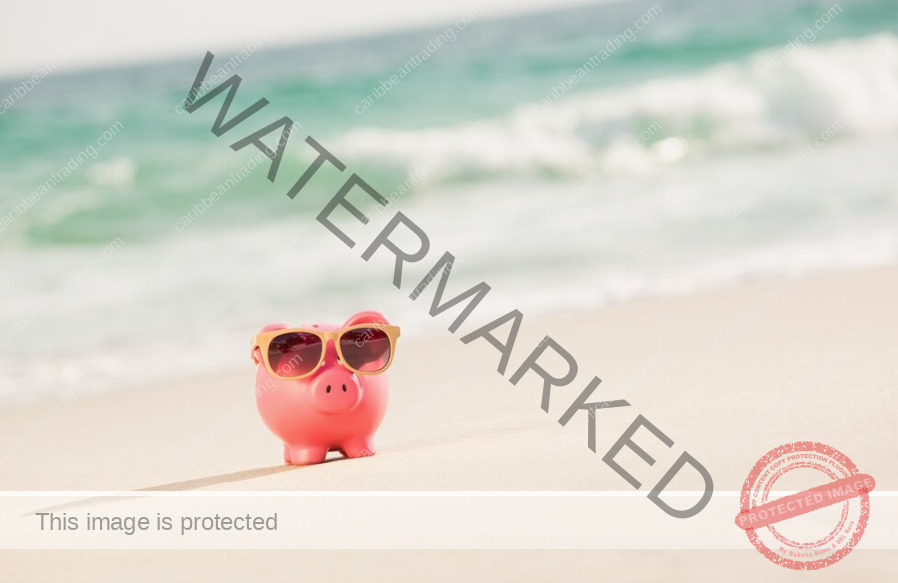Caribbean Travel Tips
How to Prepare Yourself Financially to Take a Vacation in the Caribbean
Vacationing in the Caribbean is a dream for many, with its crystal-clear waters, pristine beaches, and vibrant culture. However, the dream can quickly turn into a financial burden if not carefully planned. Financial preparation is essential to ensure that the vacation is both enjoyable and stress-free. This article will guide you through the necessary steps to prepare financially for your Caribbean getaway, covering budgeting, saving strategies, currency considerations, and even a brief look at how Forex trading can play a role in your financial preparation.
1. Setting a Budget: The Foundation of Financial Preparation
The first and most crucial step in preparing financially for your Caribbean vacation is setting a budget. This budget should encompass all aspects of your trip, including travel expenses, accommodation, meals, activities, and emergency funds.
Travel Expenses
Airfare can vary significantly depending on the season, the airline, and how far in advance you book. It’s advisable to start monitoring flight prices several months before your intended departure date. Use flight comparison websites to find the best deals, and consider signing up for fare alerts.
Accommodation
The Caribbean offers a wide range of accommodation options, from luxury resorts to budget-friendly hotels and vacation rentals. Determine what type of accommodation suits your preferences and budget. Remember to account for additional fees such as resort fees, taxes, and tips.
Meals and Dining
Dining out in the Caribbean can be expensive, especially at tourist hotspots. Research dining options in advance and allocate a daily meal budget. Consider mixing dining out with self-catering options if your accommodation allows it.
Activities and Excursions
The Caribbean is known for its diverse range of activities, from water sports to cultural tours. Plan which activities you want to participate in and allocate funds accordingly. Some activities may require advance booking, and it’s often possible to find discounts by booking online.
Emergency Fund
Always set aside a portion of your budget for unexpected expenses. This could include medical emergencies, unplanned excursions, or even extended stays due to travel delays.
Once you have estimated the total cost of your trip, add a buffer of about 10-15% to cover any unforeseen expenses. This comprehensive budgeting will give you a clear financial target to aim for as you begin saving.
2. Strategic Saving: Making Your Dream Vacation a Reality
With a budget in place, the next step is to start saving. Here are some strategies to help you reach your financial goal:
- Automated Savings: Set up a dedicated savings account specifically for your vacation fund and automate transfers from your primary account. By treating these transfers as non-negotiable, like a bill payment, you’ll be less tempted to spend the money elsewhere.
- Cutting Unnecessary Expenses: Review your current spending habits and identify areas where you can cut back. This could include dining out less frequently, reducing subscription services, or opting for more cost-effective transportation options. Redirect these savings into your vacation fund.
- Extra Income Streams: Consider taking on a part-time job, freelancing, or selling unused items to boost your vacation savings. Every little bit helps and can bring you closer to your financial goal.
- Utilize Rewards and Discounts: If you have a credit card that offers travel rewards or cashback, use it strategically to earn points or money that can be applied toward your vacation expenses. However, avoid going into debt by spending more than you can pay off each month.
- Seasonal and Off-Peak Travel: If your schedule is flexible, consider traveling during the off-peak season. Prices for flights and accommodations are generally lower, and you’ll also avoid the crowds. This strategy can lead to significant savings, allowing you to allocate funds elsewhere.
By implementing these saving strategies, you can steadily build up your vacation fund without putting undue stress on your regular finances.
3. Currency Considerations: Navigating the Caribbean’s Financial Landscape
One aspect of financial preparation that is often overlooked is currency exchange. The Caribbean is home to many different countries, each with its own currency, and understanding how to manage your money across different currencies can help you avoid unnecessary expenses.
- Research Local Currencies: Depending on your destination, you may encounter currencies like the Eastern Caribbean Dollar (XCD), the Bahamian Dollar (BSD), the Jamaican Dollar (JMD), or others. Some countries also accept U.S. dollars, but it’s important to confirm this ahead of time.
- Exchange Rates and Fees: Exchange rates can fluctuate, and foreign transaction fees can add up quickly. To minimize costs, consider exchanging money at a local bank before your trip or using a credit card with no foreign transaction fees. Be mindful of the rates offered at airport kiosks or hotels, as they are often less favorable.
- Cash vs. Card: While cards are widely accepted in many Caribbean destinations, it’s wise to carry some local currency for small purchases, tips, or in case of emergencies where cards may not be accepted. Be aware of ATM withdrawal fees, and choose your withdrawal amounts wisely to minimize the number of transactions.
- Budgeting in Local Currency: As you plan your budget, convert your estimates into the local currency to get a clearer sense of how much you’ll be spending. This will help you avoid surprises when you arrive.
Properly managing currency considerations can prevent unexpected costs and help ensure that your vacation stays within budget.
4. Travel Insurance: Protecting Your Investment
Travel insurance is an essential, yet often overlooked, aspect of financial preparation for a Caribbean vacation. It provides coverage for unexpected events that could otherwise result in significant out-of-pocket expenses.
- Types of Coverage: Travel insurance typically includes coverage for trip cancellations, medical emergencies, lost luggage, and travel delays. Depending on your needs, you can purchase comprehensive coverage or tailor your plan to include only specific protections.
- Cost vs. Benefit: While travel insurance adds to the overall cost of your vacation, it’s a small price to pay for peace of mind. In the event of a medical emergency or trip disruption, insurance can save you thousands of dollars.
- Choosing a Policy: Compare different travel insurance providers to find a policy that fits your budget and covers the specific risks associated with your destination. Be sure to read the fine print and understand what is and isn’t covered.
Including travel insurance in your financial plan ensures that you are protected from unforeseen circumstances that could derail your vacation.
5. Exploring Forex Trading: An Advanced Financial Strategy
For those who are financially savvy and looking for ways to maximize their vacation budget, Forex trading offers a unique opportunity. Forex, or foreign exchange trading, involves buying and selling currencies in the global market with the aim of making a profit from fluctuations in exchange rates.
- How Forex Trading Works: Forex trading requires a good understanding of currency markets, economic indicators, and geopolitical events that can influence exchange rates. It is a high-risk, high-reward strategy that should only be considered if you have experience in trading or are willing to invest the time to learn.
- Potential Benefits for Travelers: By trading in the currency of your vacation destination, you might be able to take advantage of favorable exchange rates, thereby stretching your budget further. However, this strategy is not without risks, and losses can occur just as easily as gains.
Forex trading is an advanced financial strategy that is not necessary for most travelers but could be an option for those with a strong financial background and a willingness to take calculated risks. You can consult experts such as majesticea forex robot to solve all your questions.
6. Final Tips for Financial Success
To ensure that your Caribbean vacation is both enjoyable and financially stress-free, keep the following tips in mind:
- Monitor Exchange Rates: Keep an eye on exchange rates as your travel date approaches. If the rate is favorable, consider exchanging a portion of your money in advance.
- Stay Flexible: Flexibility in your travel dates, destinations, and activities can lead to significant savings. Be open to adjusting your plans if it means staying within your budget.
- Review Your Budget Regularly: As you get closer to your travel date, review your budget and savings progress regularly. Make adjustments as needed to ensure you meet your financial goals.
- Avoid Last-Minute Decisions: Last-minute bookings and impulse purchases can quickly blow your budget. Plan as much as possible in advance to avoid unexpected expenses.
By following these guidelines and preparing thoroughly, you can enjoy a memorable Caribbean vacation without the worry of financial strain.
Conclusion
Taking a vacation in the Caribbean is a luxurious experience that can be within reach with proper financial planning. From setting a realistic budget and implementing strategic savings to considering currency exchange and exploring advanced options like Forex trading, these steps will help you prepare financially for your dream vacation. With careful planning and disciplined saving, you can relax and fully enjoy your time in the Caribbean, knowing that your finances are well-managed.







